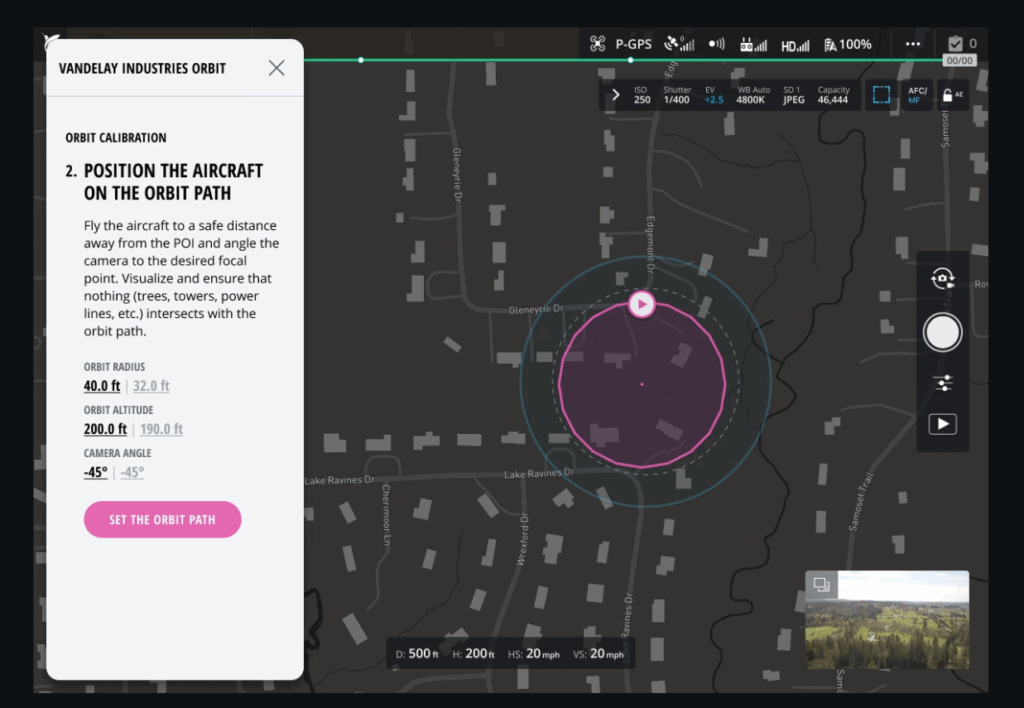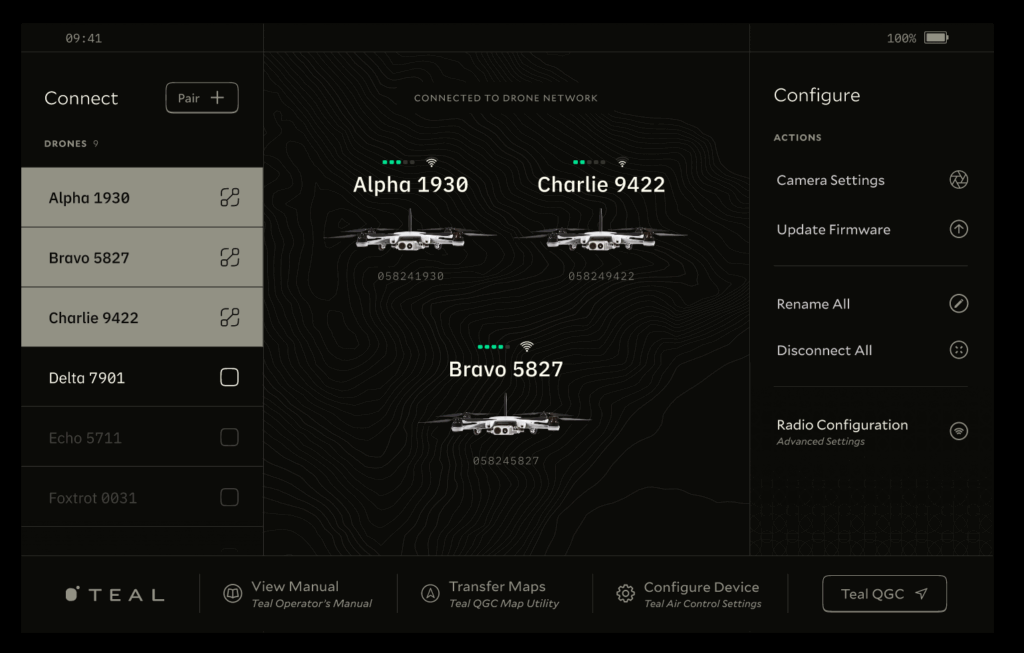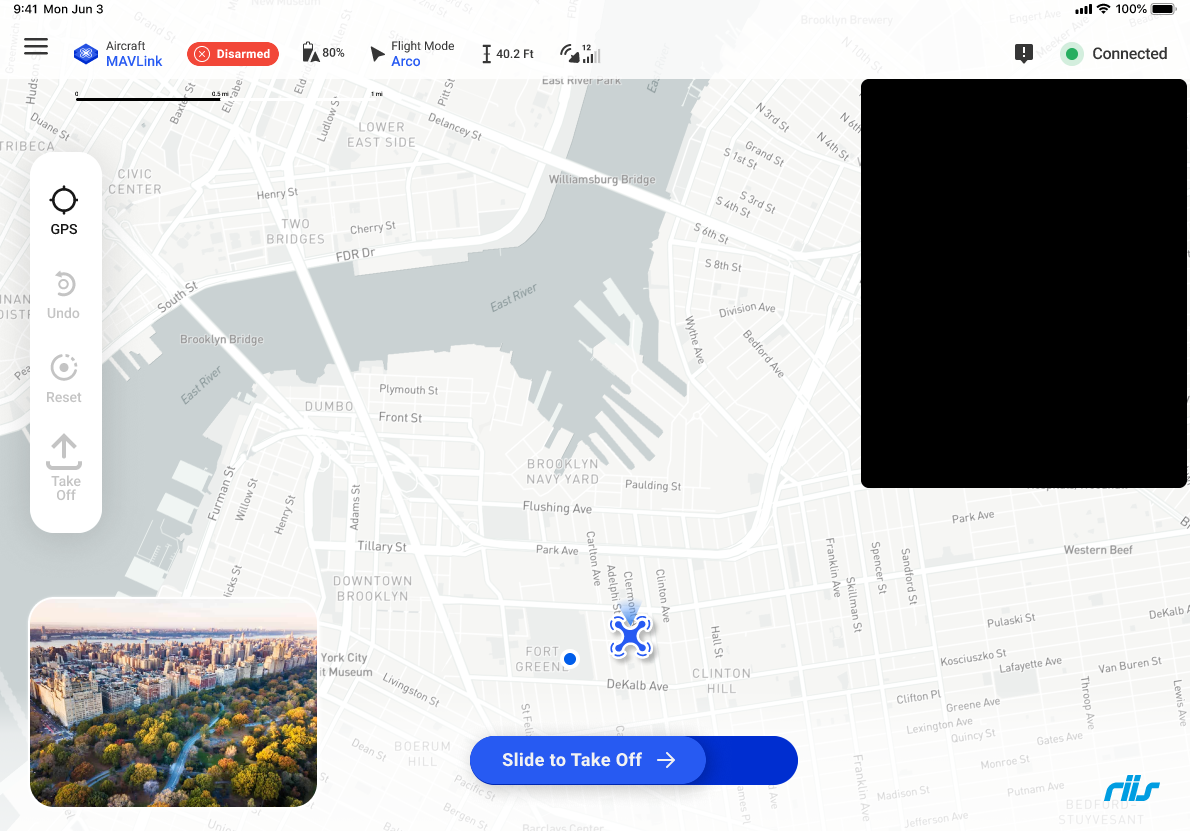In the drone industry, hardware innovation often outpaces software integration. In that gap, one company quietly serves as the indispensable “glue” that holds complex systems together. Research Into Internet Systems (RIIS) LLC, led by visionary president Godfrey Nolan, combines deep engineering expertise with cutting-edge software customization to empower drone manufacturers and operators globally. From pioneering software development kits (SDKs) to advancing Android Team Awareness Kit (ATAK) plugin integrations and bespoke hardware designs, RIIS impacts how drones operate across all sectors—all while cultivating the next generation of tech talent. Read on to learn more about RIIS and its unique approach to fueling the future of autonomous flight.
The Engineer Behind the Ecosystem
Based in Troy, Michigan, RIIS has become a leading firm in custom drone software and hardware development. Godfrey Nolan, the company’s President, drives true progress in the drone industry through roots that stretch far deeper than technology trends. He began his impressive academic journey with a degree in mechanical engineering from University College Dublin. Later, he earned a master’s in Computer Science, specializing in distributed processing systems at the University of the West of England.
With such an impressive pedigree, combined with decades of experience blending hardware fundamentals and advanced software, Nolan also deeply invests in the education of others. He teaches at universities around Southeast Michigan, including Kettering University, Lawrence Technological University and Saginaw Valley State University to share the latest innovations with students and recruit bright minds from his classrooms as interns. A prolific writer, Nolan once released “a book a year for a while,” before focusing his efforts more on online content and engaging podcasts—all in addition to his important work at RIIS.
From App Development to Drone Industry Pillar
As a company, RIIS came to being in the late 1990s. “We started off as a web dev and then mobile app dev company. And then about ten years ago, we got into drones,” Nolan recounted.
The pivot to drones was almost serendipitous. “We came across this SDK and thought, wow, this is interesting, and just basically started developing drone applications,” he said. What began as an experiment to streamline and automate app-based workflows quickly evolved into a specialty in drone solutions, spurred by RIIS’ persistent culture of innovation. “Every quarter we do three different things that we throw at the wall and hope we find one for which ‘the spaghetti sticks,’ and then we go after that. And that’s actually how we got into drones,” Nolan quipped.
SDKs, APIs and RIIS’ Unique Value Proposition
SDKs (Software Development Kits) and APIs (Application Programming Interfaces) form the core of modern drone and IoT development. SDKs, as Nolan described, are “headless apps” to which developers can attach new interfaces and features to enable endless customization. He further explained, “The SDK allows you to basically create a one-stop-shop for taking the pictures and getting to whatever back-end you want. APIs extend the reach and serve as bridges for applications to communicate and perform complex tasks.”

Sensors typically also have their own SDK and RIIS builds the bridges between hardware sensors, drones and custom software so clients “can basically push the button, take the pictures and then they get a report via email,” according to Nolan. For example, some of RIIS’ early work, which removed the hassle of SD cards and connected the drone directly to apps and cloud services, made the use of agricultural drones easier for farmers.
Serving Industry Leaders and Innovators
RIIS has partnered with over 50 drone companies, many of them leaders and emerging innovators. “We started off with a company that was bought by AgEagle…And then our big break was…Skyward, funded by Verizon. It was one of the first big apps that was out there that people could use to fly,” Nolan said.
RIIS’ reach expanded to work with companies like Measure, Mapware, Aerodome (before its acquisition by Flock Safety) and others, often building key mobile apps, backend web portals, and custom integrations. Nolan describes RIIS as, “the glue that holds a lot of this together,” filling the gaps between drone hardware manufacturers and the complex software their products require. By offering everything from user interface customization to backend analytics and cloud integration, RIIS ensures that even non-tech savvy clients can “have something that works, that’s easy to use and that has a nice clean user interface so that their customers don’t ask them lots of support questions.”
Custom Interfaces and Focus on ATAK Integrations
Much of RIIS’ value lies in the company’s software specialization, especially in its ability to customize widely used open-source ground control stations (GCS). “The problem that we find a lot of the time is that drone manufacturers are really good in the hardware space, but may not necessarily be good in the software space.”
Modifications to open-source platforms like QGroundControl, a staple in the drone industry, remain in high demand. Clients seek out RIIS to customize QGC because it’s an open interface in which one can almost “do everything.” Nolan explained, “but maybe you don’t want to show all the different settings to your customer, in case they change something that they shouldn’t. So a lot of times we’ll lock down certain pages …” RIIS also strips back complexity or builds on lower-level “chassis,” like the MavSDK, to deliver fully unique interfaces.

Perhaps one of the hottest customizations right now involves the Android Tactical (Military) | Team (Civilian) Awareness Kit (ATAK), a software platform increasingly essential for public safety and military drone operations. ATAK uses a basic Android architecture. “It’s nothing special,” Nolan said, “But whoever started it, really came up with a great idea. You could use what’s known as a plugin to be able to fit on top of the ATAK base app, and that basically adds more functionality,” he explained. RIIS builds custom plugins, adding everything from IoT sensor overlays to drone piloting tools and AI-powered analysis. Nolan gushed, “You have the UAS plugin too which allows you to fly drones from ATAK, which is crazy … Then, you have counter-UAS ATAK plugins to basically see where different drones are located.”
The architecture’s modularity allows first responders and defense clients to load only the features they need, integrating seamlessly into a shareable common operating picture. Nolan highlighted ATAK’s impact. “The cognitive overload when somebody is in a fire is huge. Because everybody’s using the same ATAK app, it’s easier to use now that people are used to it.”
3D Printed Controllers and NDAA Compliance
While software is RIIS’ forte, hardware continues to become increasingly part of their business, especially with rising security and compliance standards. “We had a customer who asked us to create a remote controller that was just unique for them, with non-Chinese parts,” Nolan explained. Leveraging an Oakland County program that provided advanced 3D printers, RIIS created NDAA-compliant, custom remote controllers. “We created our own remote controller and we’re working on…version 2 already,” he said. He envisions RIIS doing a lot more in hardware due to the current environment that prioritizes non-Chinese drones and components.
Growing the Next Generation
RIIS distinguishes itself not just through technology, but also through talent cultivation. Nolan’s commitment to education directly benefits RIIS and the industry. “We found that, when we hired the graduates out of college, it was kind of hit and miss as to whether they were going to work at all… So we switched to using interns instead,” he noted.
Nolan’s model is simple but effective. Internships provide meaningful experiences. Selection is based more on “minimum drama and get your assignments done” than on raw grades alone. Interns at RIIS often return for multiple stints and many transition to permanent roles. “Several were in high school when they became interns and they’re still with me ten years later,” Nolan said. An intern who becomes an employee at RIIS stays, on average, at least five years.
RIIS is now exploring training programs for external clients, as the drone workforce rapidly expands. Nolan envisions taking RIIS’ internal training program and offering it to others as a service model.
A Future AI, Swarms, BVLOS and More
The drone industry constantly iterates and RIIS does with it. Some of the latest advances include automated swarms, Beyond Visual Line of Sight (BVLOS), improved regulatory frameworks and the pervasiveness of AI. RIIS positions itself ahead of these trends by constantly prototyping and testing emerging technologies. New SDKs, such as for the Parrot UKR (Ukraine), a potential DJI alternative, as well as tools for swarms, ROS2, and AI-centric app development focused on large language models (LLMs) are all on RIIS’ “white board.”
In the meantime, RIIS, under Godfrey Nolan’s leadership, remains “the glue that holds a lot of this together.” By blending deep hardware roots, unparalleled software expertise, a passion for workforce development and a relentless curiosity for what’s next, RIIS continues to help clients, and the whole drone ecosystem, realize the next wave of drone-powered possibilities.
As Nolan put it with characteristic humility, “Whatever the market throws at us, we’re probably already thinking about it. We’ve probably already got something cooking to see if we can quickly get it up and running for a customer.”
Learn more about RIIS by visiting the company website.
Watch Godfrey Nolan on the Dawn of Autonomy.

